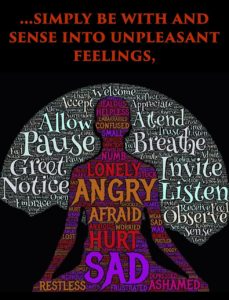 This Mothers Day I’m celebrating and honoring an expanded sense of “mother” to include everyone who has “mothered” me over my lifetime…even people I have admired from afar. I realize that there are people who have influenced my growth and development in ways that they will never even know. But I know, and I want to pay tribute in some small way.
This Mothers Day I’m celebrating and honoring an expanded sense of “mother” to include everyone who has “mothered” me over my lifetime…even people I have admired from afar. I realize that there are people who have influenced my growth and development in ways that they will never even know. But I know, and I want to pay tribute in some small way.
Here is a small sampling:
- My biological mother who gave birth to me and fostered a love of learning
- My older sister to took over after the death of my mother and protected me
- My therapist, who rescued me from despair, ushered me into adulthood and introduced me to my life’s work.
- All of the teachers who inspired me with their knowledge and bore witness to my professional development.
- My techno/social media coach who convinced me that I could actually master the brave new world of computers, videoconferencing, and blogging
- All of my colleagues, sisters, and friends who share stories of their own struggles with adulthood as it unfolds, and listen to my stories
- My father who did his best to “fill in” after the death of my mother
- Mother Earth who provides my home
- My daughters who keep me humble and “up to speed” on modern culture
- My husband to keeps me honest and accountable
If you are on this list and reading this now, you will know who you are. I’d like to thank you now. Notice that you do not have to be “biologically” female to perform the “mothering” function. Knowing and acknowledging this is part of my growth.
I encourage everyone to come up with a similar list. Here is one more thought. As you contemplate the contribution of everyone who has mothered you through your journey, realize that none of us is perfect, including yourself, so think about doing some forgiving along the way. You can forgive, for example, when the attempts to help you have been clumsy or the timing has been “off”. Forgiving in these instances is what allows the true gift to shine thorough, so you can now say: “Ah, I see it now! I see what you were trying to tell me, or show me”.
What I just described above is my “forgiveness process. I hope it works for you.
So…don’t leave out the forgiveness piece.
And if your ”mothers” are still in your life, acknowledge and thank them now. At some point it may well be too late
Last but not least, in whatever way you have been a “mothering” force in the world
Happy Mothers Day to You!!!









